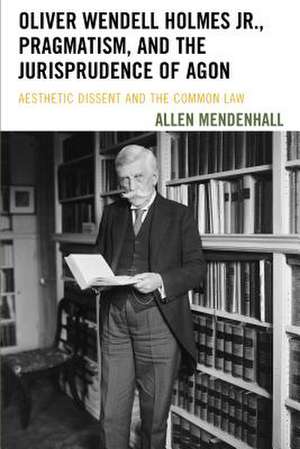OLIVER WENDELL HOLMES JR PRAGMPB
Autor Allen Mendenhallen Paperback – 14 iun 2018
Preț: 417.13 lei
Nou
Puncte Express: 626
Preț estimativ în valută:
79.82€ • 83.44$ • 67.45£
79.82€ • 83.44$ • 67.45£
Carte tipărită la comandă
Livrare economică 06-20 martie
Preluare comenzi: 021 569.72.76
Specificații
ISBN-13: 9781611487930
ISBN-10: 1611487935
Pagini: 202
Dimensiuni: 152 x 229 x 16 mm
Greutate: 0.32 kg
Editura: Rowman & Littlefield
ISBN-10: 1611487935
Pagini: 202
Dimensiuni: 152 x 229 x 16 mm
Greutate: 0.32 kg
Editura: Rowman & Littlefield
Cuprins
Preface
Acknowledgments
Introduction
Chapter One
Chapter Two
Chapter Three
Chapter Four
Bibliography
About the Author
Endnotes
Descriere
Oliver Wendell Holmes Jr.'s dissents are influential because of their literary qualities of superfluity and energy he inherited from Emerson. The aesthetic style of his dissents reflects his theory of the common law that rejected depictions of fixed and unchanging rules in favor of an evolutionary view.
